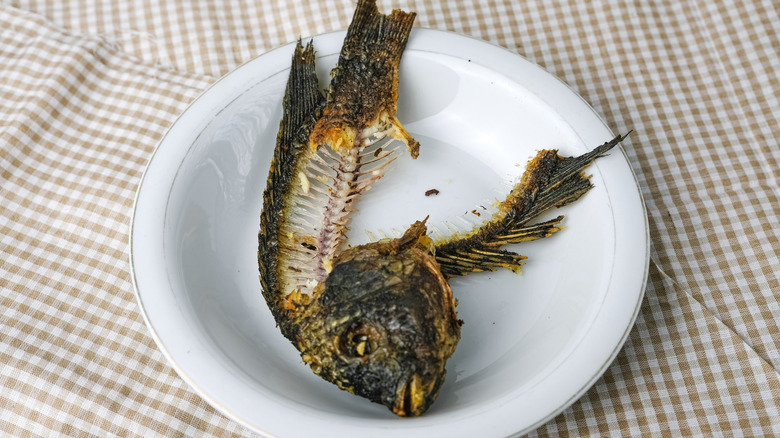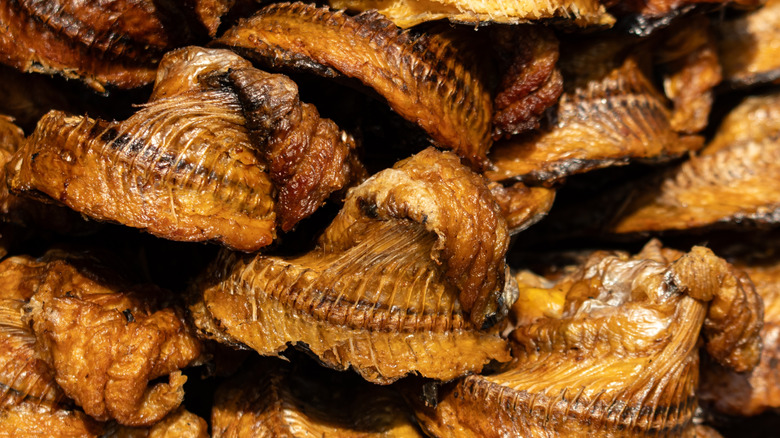Why You Shouldn't Throw Away Discarded Fish Bones
"Save the liver!" exclaimed Dan Aykroyd, playing the late Julia Child in that famous 1978 SNL bit as she humorously insisted on saving the chicken liver while dealing with a comically exaggerated cooking accident. Well, if there were a reprise of that skit today, we'd suggest changing the line to "Save the fish bones!" Why, you might ask? Good question. After you've cooked your fish, avoiding all the mistakes, these compelling reasons will convince you the bones are a valuable culinary resource, and deserve to be saved.
First and foremost, fish bones are rich in essential nutrients, particularly calcium and phosphorus. Studies have shown that the body readily absorbs the calcium from fish bones, making them an excellent source for those looking to boost their mineral intake. In fact, incorporating fish bones into your diet can help support overall bone health and reduce the risk of osteoporosis.
Regarding a more food-centric reason to save your fish bones, they can also be transformed into flavorful stocks and broths. Simmering fish bones with various vegetables creates a rich base for soups, sauces, and risottos, enhancing the overall flavor profile of your dishes. This technique maximizes the use of the entire fish and adds depth to your culinary creations.
Preparing fish bones for eating
Now that you know the benefits of saving those aquatic skeletons, let's look at a few different methods for preparing them for consumption. We'll also note that cooking and eating a whole fish produces a much more flavorful, juicy meat for those with a more adventurous seafood sense.
After you've cooked your fish, avoiding all the mistakes, Start by thoroughly washing your fish bones to remove excess blood, bits of fish, and any fishy smell. This step is crucial for ensuring a clean flavor in the final dish. Rinse them under cold water until they are clear of any debris.
After cleaning, marinate the fish bones to enhance their flavor. A mixture of ginger, spring onions, and Chinese rice wine can reduce lingering odors and infuse the bones with aromatic flavors. Allow them to marinate for about 15 minutes before cooking.
The most popular cooking techniques are frying and grinding. When frying, you can coat fish bones in a light batter or starch (like potato or cornstarch) and fry them until golden brown and crispy. This not only makes them crunchy but also adds a great texture.
Another popular option is grinding fish bones to incorporate into other dishes, such as soups or sauces, for a nutritional boost. While grinding fish bones may sound a bit arduous, it's important to note that the skeletons of fish are softer than those of land animals, making them much easier to grind.


